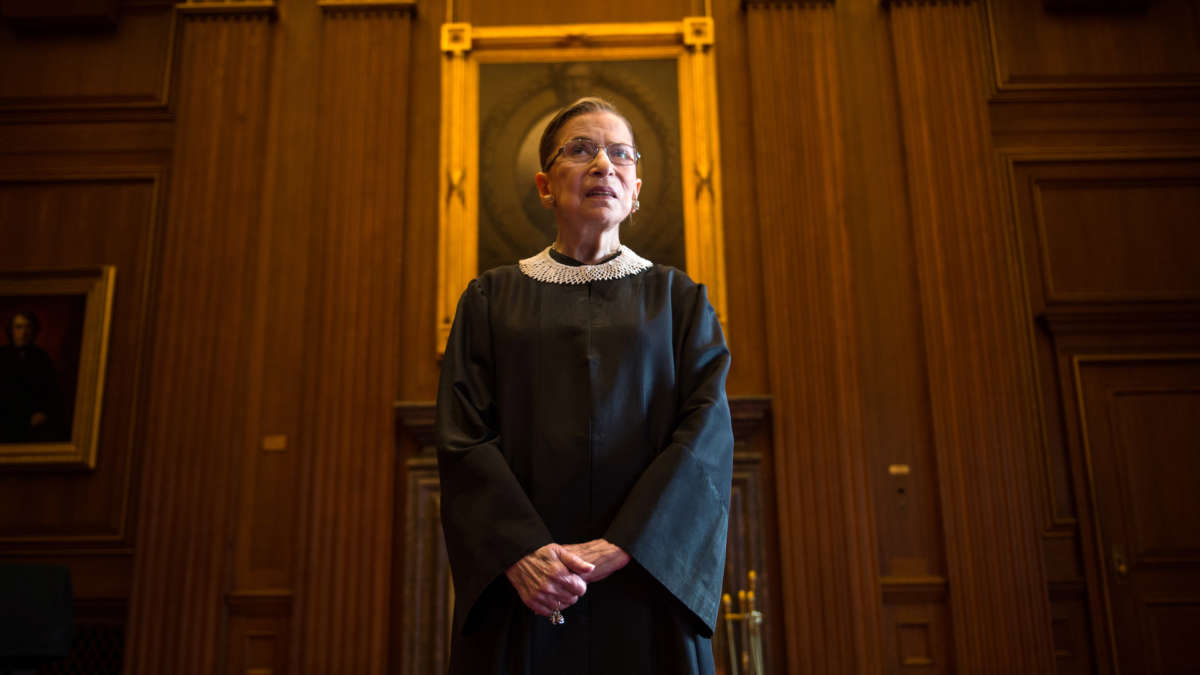Several Democratic lawmakers in Congress have introduced legislation that seeks to honor the late Supreme Court Justice Ruth Bader Ginsburg with a monument in her honor in the U.S. Capitol building.
The bill is sponsored by several members of the Democratic Women’s Caucus, and was introduced this week to highlight March as Women’s History Month. The proposal’s introduction at this time on the calendar is noteworthy for another reason: March 15 would have been Ginsburg’s 88th birthday.
Caucus Chairwoman Rep. Lois Frankel (D-Florida), joined by Rep. Jackie Speier (D-California), Rep. Raja Krishnamoorthi (D-Illinois), Rep. Brenda Lawrence (D-Michigan) and Rep. Veronica Escobar (D-Texas), introduced the legislation in the House of Representatives. Sen. Amy Klobuchar (D-Minnesota) also introduced a similar bill within the Senate.
Ginsburg, who served for 27 years on the high court before her death late last fall, is viewed as a stalwart of the U.S. legal system, for both her time as a justice as well as for her legal career before she was appointed to a federal judgeship in 1980.
“The notorious RBG was tiny in stature but a giant in bringing women’s equality to our country by first using the courts to file lawsuits and then on the court opining on equality for all,” Speier said in a press release announcing the proposed monument.
“It is only fitting that we immortalize this feminist icon with a statue in the Capitol that honors her legacy and educates future generations of her profound contributions,” Speier added.
“Today, America is a more just, fair, and equal nation because of Justice Ruth Bader Ginsburg,” Krishnamoorthi also said of the late justice. “Placing a monument in her honor at the Capitol will enshrine her legacy of shattering glass ceilings and fighting tirelessly for women’s rights.”
Although it’s unclear what form a monument to Ginsburg would take — as a portrait, a bust, or a statue — the proposed legislation would require her likeness to be located in a “place of prominence” in the Capitol building.
Under normal circumstances where a pandemic isn’t limiting travel, the Capitol building sees between 3 to 5 million visitors each year. At present, the monuments in the building disproportionately favor men over women: Of the 100 monuments in the National Statutory Hall collection, for example, only nine statues are of women.
If the bill does pass and a monument to Ginsburg is agreed upon, it may take several years for one to actually be placed in the building. A statue of civil rights icon Rosa Parks, for example, took eight years to be placed in the Capitol after Congress commissioned it in 2005.
Ginsburg had received the highest approval rating among all nine members of the Supreme Court, according to a Marquette University Law School poll conducted last year, with 44 percent saying they viewed her work on the court favorably and only 19 percent saying they had an unfavorable opinion of her (the remaining 37 percent said they didn’t know enough to form a view one way or the other).
Join us in defending the truth before it’s too late
The future of independent journalism is uncertain, and the consequences of losing it are too grave to ignore. We have hours left to raise the $12,0000 still needed to ensure Truthout remains safe, strong, and free. Every dollar raised goes directly toward the costs of producing news you can trust.
Please give what you can — because by supporting us with a tax-deductible donation, you’re not just preserving a source of news, you’re helping to safeguard what’s left of our democracy.
